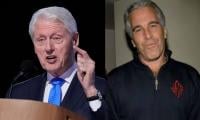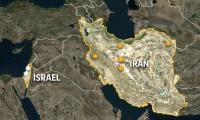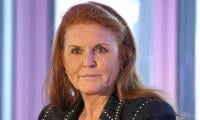Textile exports decline 9.47pc in March
KARACHI: Pakistan’s textile and clothing exports recorded 9.47 percent year-on-year decline to $1.088 billion in March 2019, taking the nine-month (July-March FY19) exports to $9.99 billion, as higher cost of doing business and economic uncertainty kept the industry under pressure.
“This is the largest monthly decline in textile exports since May 2017, and it should also be noted that during that previous instance the drop in textile exports (-12 percent) was due to external factors ie transporters’ strike,” Ahmed Lakhani at JS Global Capital said.
On month-on-month basis, textile sector exports recorded a decline of 0.12 percent in March compared with $1.09 billion recorded in February 2019, the Pakistan Bureau of Statistics (PBS) reported.
An industrialist said Pakistan’s exports were largely dependent on imported inputs. “Fluctuation in rupee value and costlier utilities rendered Pakistan’s products uncompetitive in the international markets.”
In March, cotton yarn exports decreased 28.23 percent year-on-year to $91.919 million; knitwear exports declined 6.48 percent to $215.28 million; bed wear exports decreased 3.63 percent to $189.234 million; readymade garments exports slipped 3.42 percent to $214.915 million, while cotton cloth fetched $185.55 million in March, down 3.42 percent over the same month a year earlier.
“During March 2019, every major textile segment witnessed a decline in exports. The dismal performance during this month can mainly be attributed to declining textile imports by China, Pakistan’s major yarn customer, whereas a fall in global demand and higher local sales were also likely causes of the decline during the month,” Lakhani said.
However, recent statements by the country’s policymakers suggest optimism that exports were expected to show a resurgence in the next 1-2 months, which also conveniently coincides with the ongoing China-Pakistan Free Trade Agreement-II and the upcoming Federal Budget in May 2019.
An office bearer of FPCCI said the policy of higher interest rates had backfired, as there was no respite in inflation, but industrial investment had slowed down. No industrialist could afford to expand at the prevailing interest rates, the official said.
Moreover, the currency devaluation also proved counterproductive, as the exports did not pick up despite 34 percent devaluation since January 2018.
-
 Nvidia’s New Specialized Chip Aims To Accelerate AI Processing Speeds
Nvidia’s New Specialized Chip Aims To Accelerate AI Processing Speeds -
 Demi Moore Was Left With ‘intense’ Illness After ‘The Substance’
Demi Moore Was Left With ‘intense’ Illness After ‘The Substance’ -
 How AI Can Read Your Thoughts Without You Speaking?
How AI Can Read Your Thoughts Without You Speaking? -
 Elon Musk’s Grok Faces Scrutiny From Federal Agencies Amid Pentagon-Anthropic Standoff–Here’s Why
Elon Musk’s Grok Faces Scrutiny From Federal Agencies Amid Pentagon-Anthropic Standoff–Here’s Why -
 ‘I Saw Nothing’: Bill Clinton Denies Knowledge Of Epstein’s Crimes In House Testimony
‘I Saw Nothing’: Bill Clinton Denies Knowledge Of Epstein’s Crimes In House Testimony -
 Jim Carrey Makes Surprising Confession About Rarely Seen Girlfriend Min Ah
Jim Carrey Makes Surprising Confession About Rarely Seen Girlfriend Min Ah -
 How Michael J. Fox Helped Harrison Ford With His Parkinson's Monologue
How Michael J. Fox Helped Harrison Ford With His Parkinson's Monologue -
 AI Safety Battle: Anthropic Fires Back At Pentagon After US Military Flags It ‘supply Chain Risk’
AI Safety Battle: Anthropic Fires Back At Pentagon After US Military Flags It ‘supply Chain Risk’ -
 OKC Vs Nuggets: NBA MVP Shai Gilgeous-Alexander Scores 36 In Fiery Overtime Win
OKC Vs Nuggets: NBA MVP Shai Gilgeous-Alexander Scores 36 In Fiery Overtime Win -
 Eric Dane's Biggest Regret Comes To Light Following Days Of His Death
Eric Dane's Biggest Regret Comes To Light Following Days Of His Death -
 Israel Launches Attack On Iran's Capital And Declares State Of Emergency
Israel Launches Attack On Iran's Capital And Declares State Of Emergency -
 At Least 15 Dead After Military Plane Carrying New Banknotes Plunges Out Of Control In Bolivia
At Least 15 Dead After Military Plane Carrying New Banknotes Plunges Out Of Control In Bolivia -
 OpenAI Partners With Pentagon After Trump Bans Anthropic AI
OpenAI Partners With Pentagon After Trump Bans Anthropic AI -
 Trump Orders Federal Agencies To Stop Using Anthropic AI Tools
Trump Orders Federal Agencies To Stop Using Anthropic AI Tools -
 Shocking Details Emerge In Martin Short’s Daughter Katherine's Death Investigation: 'Kept To Herself'
Shocking Details Emerge In Martin Short’s Daughter Katherine's Death Investigation: 'Kept To Herself' -
 Daniel Serafini Gets Life Without Parole In In-laws Murder And Attempted Murder Case
Daniel Serafini Gets Life Without Parole In In-laws Murder And Attempted Murder Case



